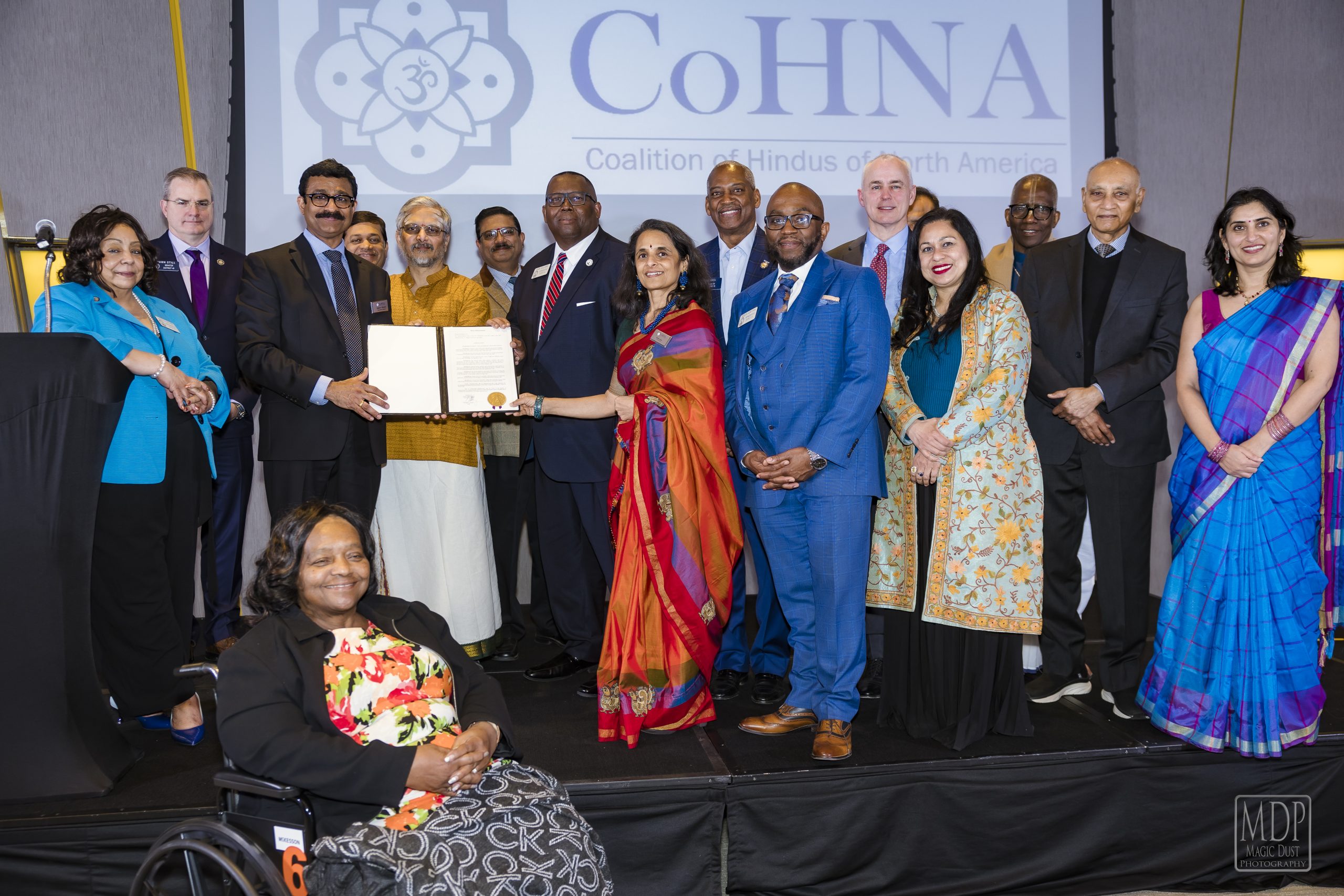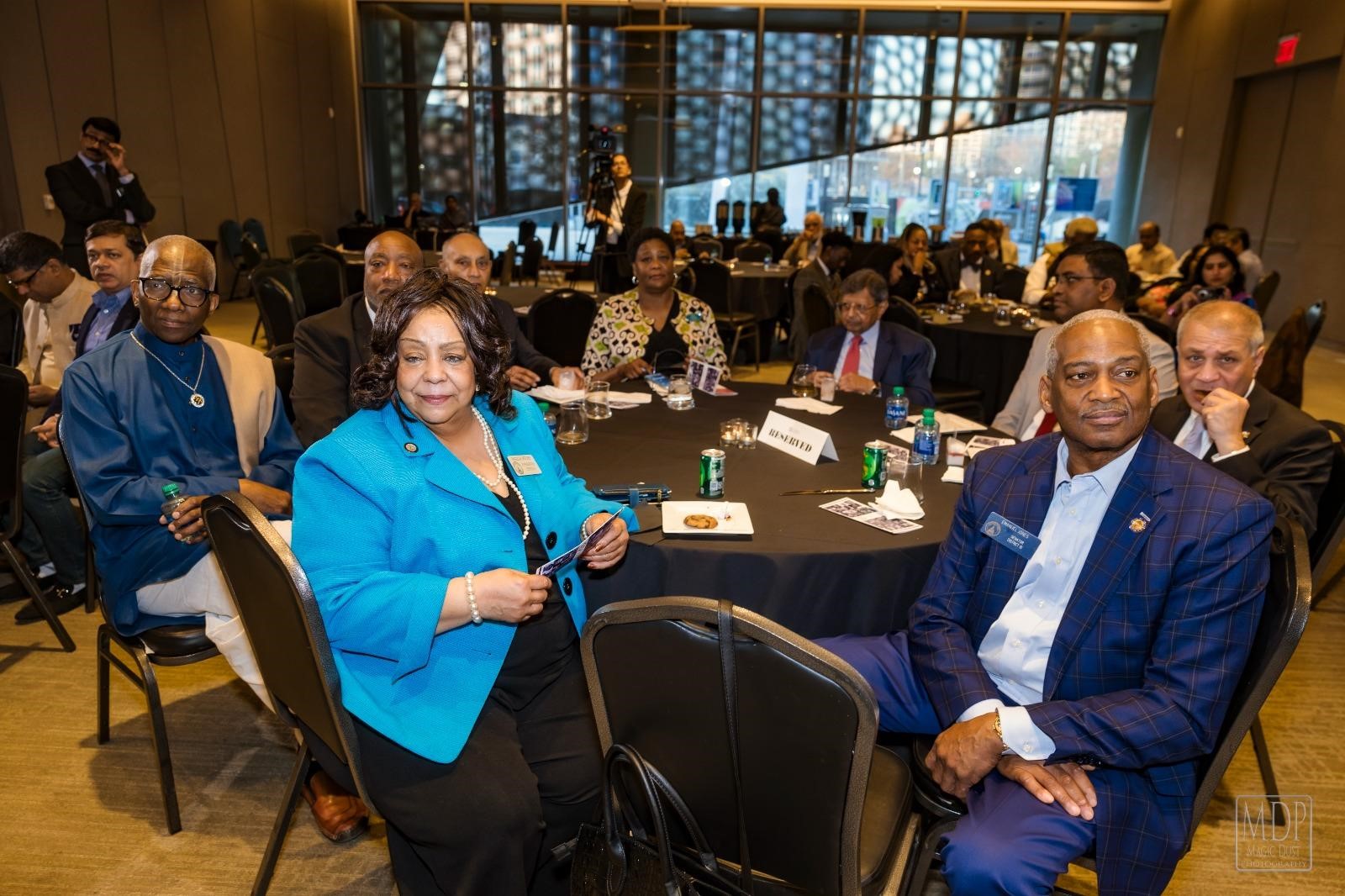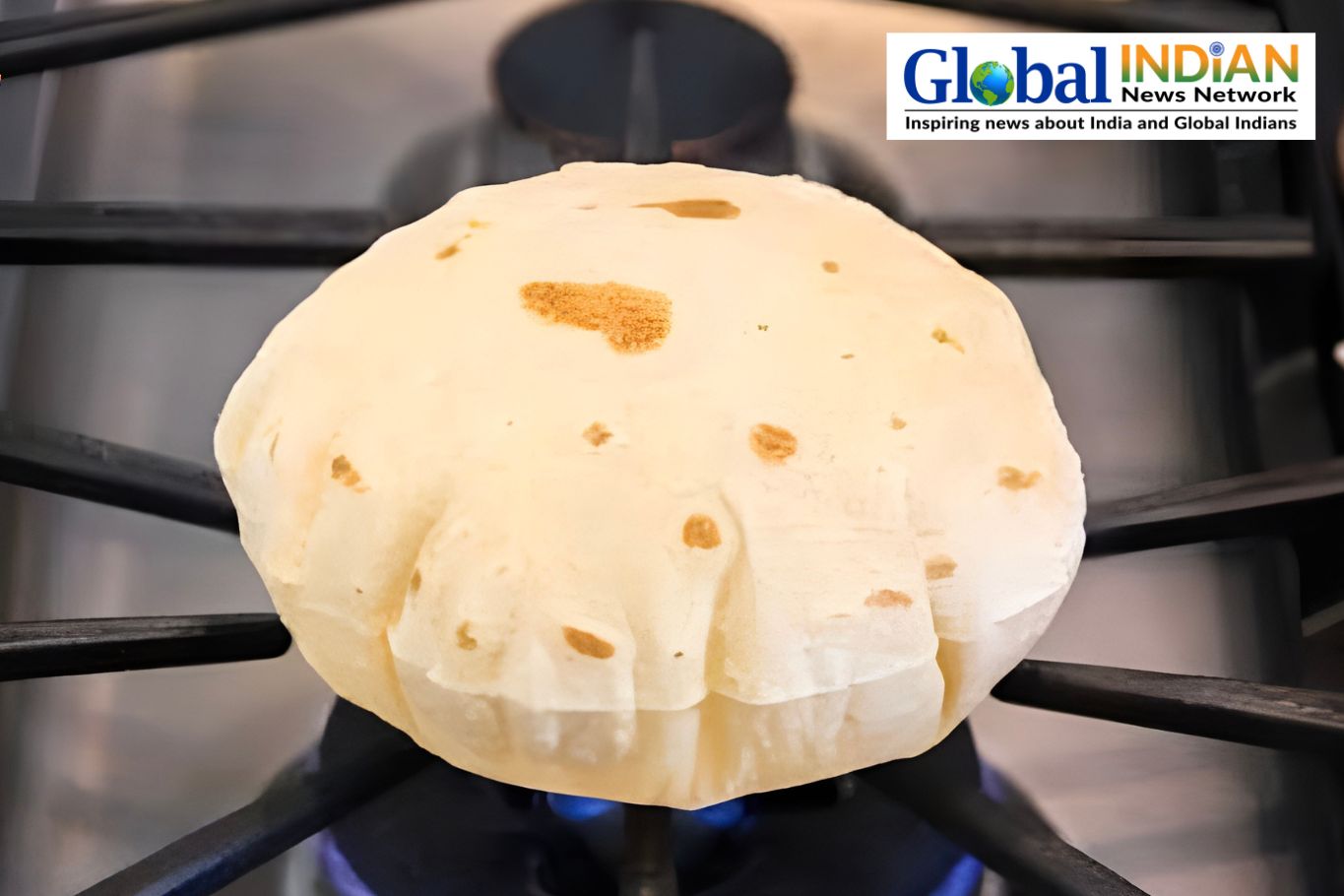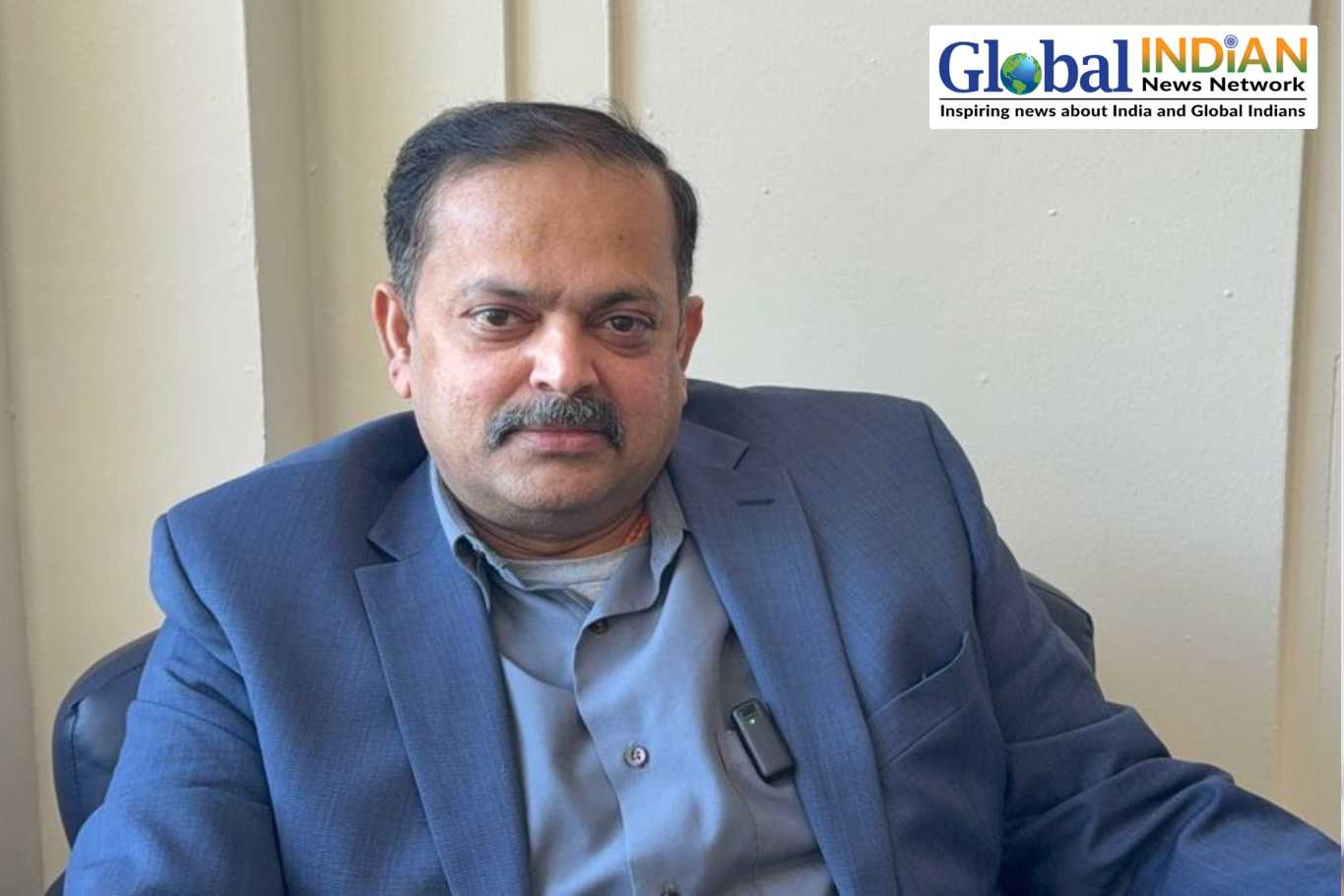
A unique, first of its kind event at the National Center for Civil and Human Rights, brought together luminaries from the Georgia state legislature and the Atlanta Hindu and Indian American communities for an evening focused on Building Bridges and Connecting Communities. Organized by the Coalition of Hindus of North America (CoHNA), the event highlighted the definitive role of the civil rights movement in the U.S, the paths it opened in the years to come for the Hindu and Indian American communities, and the road ahead.
Catch vignettes from the evening here.
“What a powerful event was held. The chains have been broken. The links have been linked. The bridge has been built and now it’s time for us to crossover,” said the keynote speaker for the evening, Rep. Carl Gilliard, Chairman of the Georgia Black Legislative Caucus. “The history of Black America is the history of America itself, so we are very pleased today to be celebrating it with our friends in the Hindu American community. We grew up inspired by the stories of the great men and women who waged the long battle for equality-stories you see showcased all around us today in this inspiring National Center for Civil rights and Human Rights.”
“Diversity and resilience are some of the great strengths of the U.S. and values that both our communities share in abundance, along with the experience of being a minority. There is much to collaborate and learn from each other. I thank CoHNA for bringing us together to strengthen understanding and build new connections,” he went on to state.
Addressing the gathering, the Consul General of India in Atlanta, Honorable Ramesh Babu Lakshmanan said, “Living and working right here in Atlanta, Dr. Martin Luther King Jr. drew inspiration from the Ahimsa principles that had guided Mahatma Gandhi and the Indian independence movement in general. The connection continued and grew in the decades that followed, with stalwarts like Rep. John Lewis who strengthened the relationship and potential for collaboration via initiatives like the Gandhi King Scholarly Exchange.”
Diverse Voices and Connections
Hindus in the US are now a fast-growing minority group. And contrary to popular belief, they include members from diverse ethnicities, countries of origin and socio-economic backgrounds.

“As a member of both minority communities in the US, I can personally attest to the challenges and labeling we face as well – especially when we seek to speak up for ourselves,” said Shri Balabhadra Bhattacarya Dasa, President of Vedic Friends Association and a Hindu spiritual leader. “Growing up in Atlanta as the battle for Civil Rights was being fought, I remain eternally inspired by their actions and the words of leaders like Martin Luther King, Jr. In later years, I was privileged to work alongside pioneering leaders like Maynard Jackson and to give back to my community.”
Hinduism became part of the US discourse in 1893, after a powerful address from Swami Vivekananda at the Parliament of World Religions and his subsequent tour of the country. But, lesser known is his stand against segregation – refusing to sit in a “Whites Only” car on a train in Tennessee, to which he had access as a distinguished brown visitor. Swami Vivekananda chose instead to sit in the car reserved for African-Americans. Lala Lajpat Rai, one of the earliest mass leaders of the Indian Independence movement and founder of the Hindu Mahasabha, spent three years in New York (1917-1920), where he developed a lasting friendship with W.E.B DuBois and worked with prominent leaders like Booker T. Washington and George Washington Carver.
Strengthening Connections for the Future
Dr. Jagdish Sheth, the Charles H. Kellstadt Professor of Business at Emory University and globally renowned management thinker, spoke at the event about the role of business in connecting communities. “There is great potential for the African American and the Indian American communities to work in partnership with lawmakers to help drive growth and invest in infrastructure required to support Georgia’s transition from a regional to a global economy.”
The packed room also saw a number of distinguished lawmakers, officials, educationists, and entrepreneurs exchange views on how to build and strengthen collaboration.
“The historical connections and cultural exchange between the African American and Hindu communities offer a great foundation for future collaboration,” said Rajeev Menon, Vice President of CoHNA. “As Hindus of North America, we offer our respects to the black community for the pathbreaking work they have achieved over decades. It is only when our communities unite, our fight for freedom strengthens. We stand alongside in the ongoing fight for equality and justice, beyond all barriers of race and religion.”









